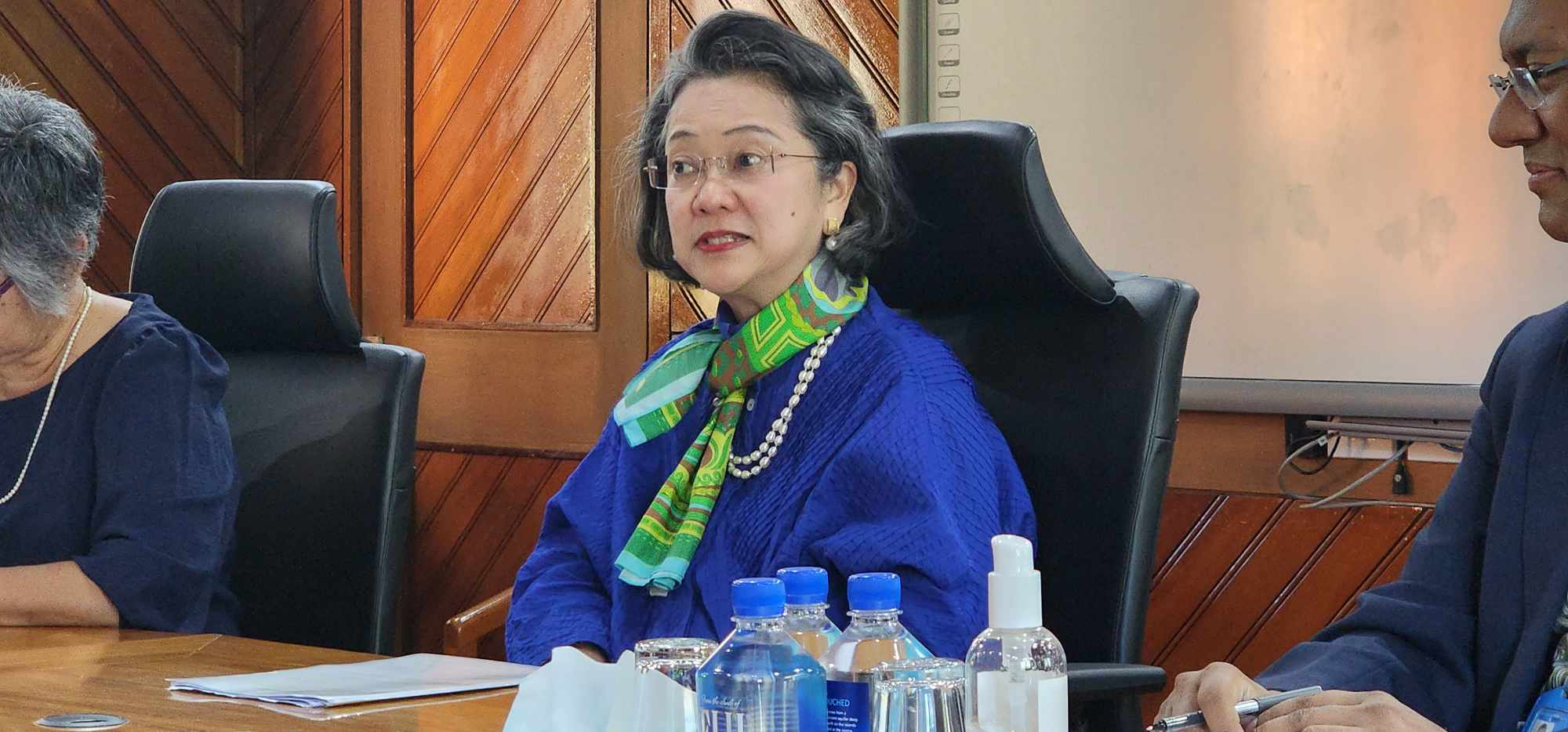The Pacific Way of balancing climate-resilient economic growth and sustainable development must be recognised and championed says UNESCAP Executive Secretary, Armida Salsiah Alisjahbana.
In her keynote address at the opening of the Forum Economic Ministers Meeting(FEMM) in Suva, Armida Alisjahbana recognise that Pacific SIDS are unique, realities are different, and vulnerabilities are ever changing and rising.
She said pursuing time-bound implementation plans in line with Pacific priorities is all but essential.
“Even though the volatile fiscal conditions and lack of investment-led growth are creating challenges, we must not lose sight of ambition.
“Investment in sustainable development is being delayed by the changing landscape of creditors, but let us commit to inclusive growth.
Technological innovations and digital finance may face barriers, yet Pacific needs to leverage digitalisation to bolster economic dynamism,” Alisjahbana told Pacific Economic Ministers in Suva.
To address this urgency, key elements of the economic blueprints for the Pacific are clear, she said.
“First, on the sustainability of debt, we can leverage multidimensional vulnerability, a measure to capture external economic and non-economic shocks, to improve access to concessional finance and provide support to Pacific SIDS in times of fiscal squeeze.
“Debt-for-climate swaps remain an important source of financing mechanisms in the Pacific.
Regional development partners can work with official creditors to cut the high transaction costs and shorten the lengthy negotiation process of these swap transactions,” she said.
Alisjahbana said effective debt relief can free up space for investment in sustainable development.
“Second, on enhancing climate finance access and modalities, we must work on developing pipelines of technically and financially sound projects that are attractive to potential investors.
“A set of stable project pipelines will greatly facilitate and accelerate access to public and private sources of development financing.
“Long-term programmatic approaches and domestic funding priorities have to be at the core of bilateral and multilateral partners’ financing framework,” Alisjahbana said.
Digital transformation can further provide opportunities to invest in accelerating climate action and accessing climate financ, she said
“Finally, support inclusive and sustainable economic framework.
“Our platforms provide you an opportunity to reinforce the role of sustainable tourism and the creative economy, traditional knowledge-based sectors and ocean ecosystems and livelihoods.
“Policy actions must be centred around the development of climate-smart and resilient agri-food systems through strengthening the value chain and market integration.
And by catalysing women’s entrepreneurship and improving digital inclusion policies, there are new opportunities for the economic empowerment of women,” she said.
Alisjahbana noted the proposal to develop a Regional Climate Finance Strategy for the Pacific at the 2022 Forum Economic Ministers Meeting was a strategic and timely endeavour.
She also said the signing of the renewed Memorandum of Understanding with Secretary General Puna during his visit to ESCAP headquarters in Bangkok in May this year signaled ESCAP’s commitment to sustainable development agenda in the Pacific.
“ESCAP is a steadfast partner in your journey to advance the priorities in the 2050 Strategy for the Blue Pacific Continent.
I urge your continued leadership and commitment to more inclusive, resilient, and sustainable development,” she said.
SOURCE: PACNEWS














